Roots: A Modern Pilgrimage
Going back to my motherland(s)
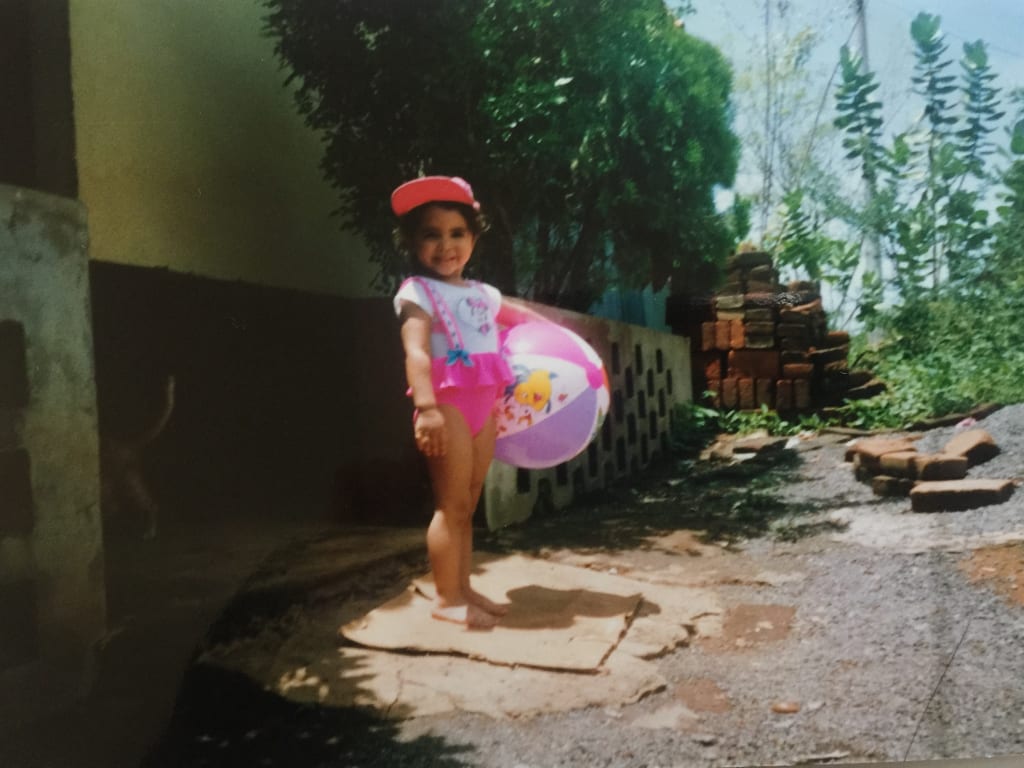
I was three years old when I went on my first pilgrimage to El Salvador, and I was 23 the first time I went to Spain, the other Motherland.
And I think there might be a reason to find my way back to those places for a different kind of pilgrimage this time.
I was born in Los Angeles, California, but both of my parents are immigrants from El Salvador, a little country in Central America; they met and got married in LA in 1984.
Spanish is my first language. My parents knew that as I grew up in the United States I'd learn English, so they made it a point to connect me to our culture. That's why, when I was three years old, they decided this was a good time to take a little trip, meet the grandmothers, and play on the black sandy beaches of our volcanic country.
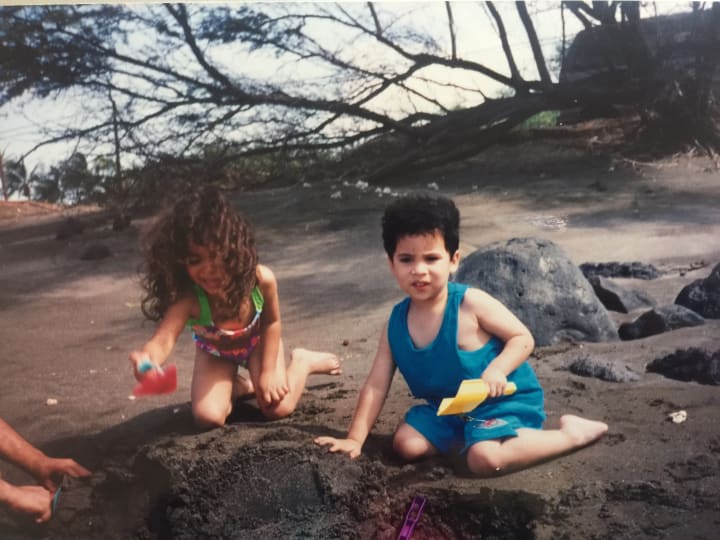
Wikipedia has a simple definition for pilgrimage:
"A pilgrimage is a journey, often into an unknown or foreign place, where a person goes in search of new or expanded meaning about their self, others, nature, or a higher good, through the experience. It can lead to a personal transformation, after which the pilgrim returns to their daily life."
Transformation is why they kept taking me and my brother back to the Motherland. They wanted to expand our understanding of the world, our sense of self, and to never forget our "humble roots".
My parents have this saying, "este es tu pueblo", meaning, this is your village, these are your people, these are your roots. My "roots" had dirt roads, unfinished concrete houses, outhouses filled with lizards, mosquitos that ate me alive, other kids with no clothes, toys, or shoes, different tasting food, and sleeping accommodations like cots or hammocks.
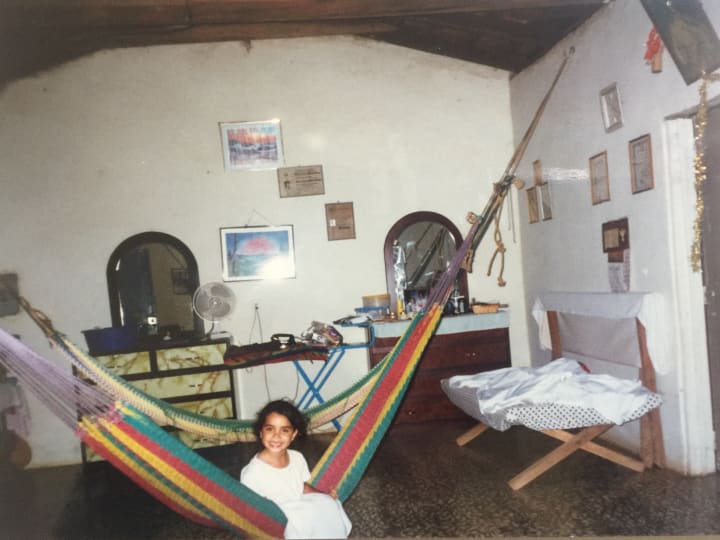
I went back to El Salvador a few more times, and the reality was that these weren't always pleasant trips. I was seven when I acquired the fear of flying cockroaches (a trauma that I've yet to conquer), and the last time I remember being in El Salvador was when I was 17 years old, the final time I saw my grandmothers. My parents always planned fun activites for us on these trips, but never shielded us from the reality of where they came from and how their families currently lived.
The last time we were in El Salvador, I remember my brother and I talking about how we couldn't wait to get back to the United States and all the comforts. We were going to kiss the ground in LAX when the plane landed. Yes, we were dramatic, but hey, we were teenagers, and everything is just extra misery... you know.
After that trip, I didn't do international travel again until I was twenty-three, the first time I went to Europe with two friends. We traveled to Spain, Italy, France, and England. It was glorious. What I wished I had known, was that Spain was also one of my country of origins. I mean, technically I knew that because, you know, history books, but this idea wasn't well-grounded in my awareness.
Have you taken one of those DNA tests that tell you your ethnic origins?This is a photo of all the regions my ancestors were from, as revealed by DNA.
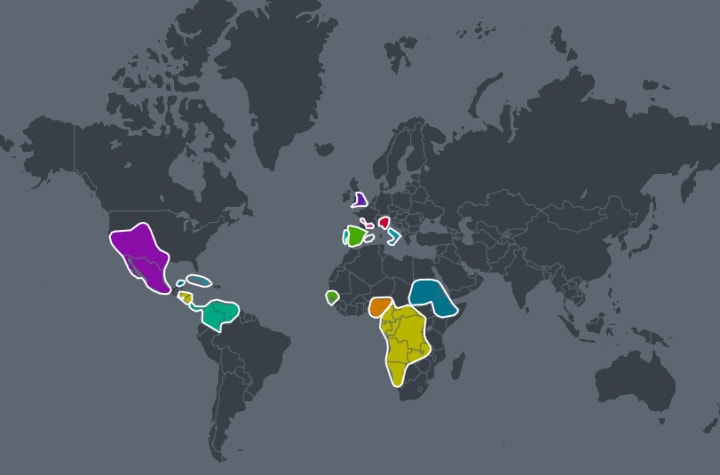
They break it down into percentages, and after doing the math it looks like I'm 49% Indigenous, 44% European, and 7% African. The two places that are the biggest pieces of this exotic pie are El Salvador and Spain, they are 57% of me.
When I was in Spain for the first time, I was just having fun with friends. I didn't stop to think of where my feet were, and how I was in the country of some of my ancestors. But this is a lesson I've learned the more I travel--to travel with more presence and intention.
I've been to many places in the world, and some trips have felt like pilgrimages. New Zealand was a pligrimage of beauty and my love of the Lord of the Rings stories. Machu Picchu in Peru was a pilgrimage to my childhood dream of seeing this ancient wonder. My year in South America was a pilgrimage back to discovery of my creative self.
A pilgrimage is a journey, the kind that's expansive and transcendent. You land in a new place, and leave it a completely different person. For a long time now, I've dreamed of walking El Camino de Santiago in Spain, one of the most famous pilgrimages in the world. I've also dreamed of returning to El Salvador to somehow capture my parents' story.

I'm thirty-one now.
I've lived through 2020.
I've learned a few things.
This next pilgrimage, the one to El Camino, Spain and the one back to El Salvador, would be one of integration. Our country is more divided than ever (*cue eye rolls and "thanks, captain obvious"*). Everyone thinks they're the good guys and everyone "else" is the bad guy.
But history has its wisdom, and my history tells a story. My veins carry the blood of people who were victimized and people who were perpetrators. The Spanish conquered Indigenous people. Indigenous people fought other tribes. European people invaded each other. We all have ties to ancestors who were both victims and victimizers.
I think reconnecting and taking a "pilgrimage" back to our motherlands, back to our roots, can bring more empathy, especially if our mindset is one of accepting all the parts of our story. This is not about shame. We have no power over what our grandmothers and grandfathers chose. But we have a choice now. So, now that we've walked through the soil that has been blood stained for centuries, how will we live differently from our ancestors? How will we do better? Traveling back to our origins is a moment of true beauty, one of joy and grief, because everything belongs in the story.
Maybe I'll be thirty-three years old on my next pilgrimage to my roots.
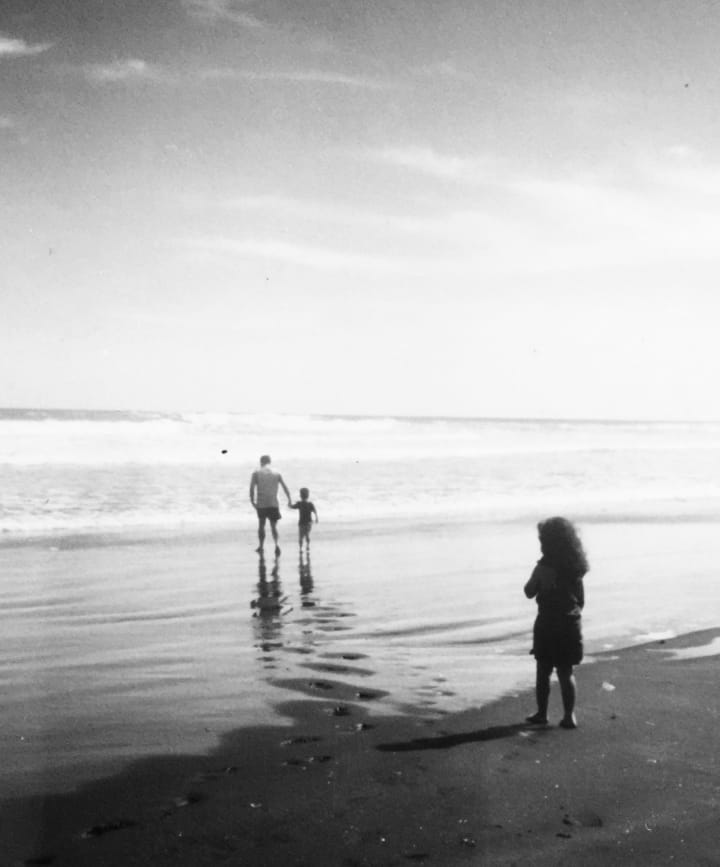
About the Creator
Tiara Menjivar
I’m a filmmaker, world traveler, storyteller, creative, and the host of The Breaking Podcast. I challenge old stories that keep us stuck, so we can live an authentic, creative life.
https://tiaramenjivar.com


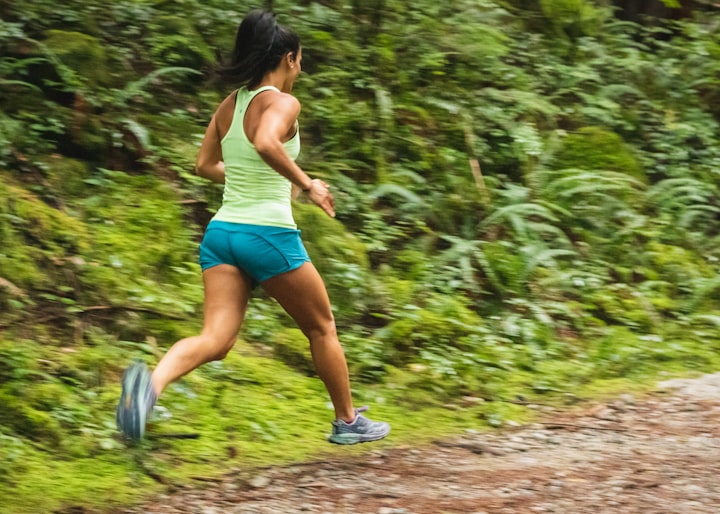

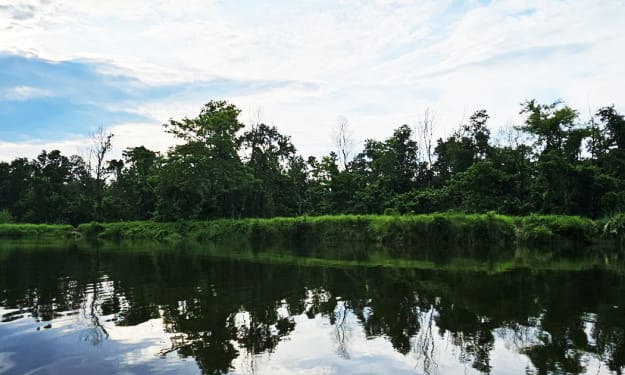

Comments
There are no comments for this story
Be the first to respond and start the conversation.